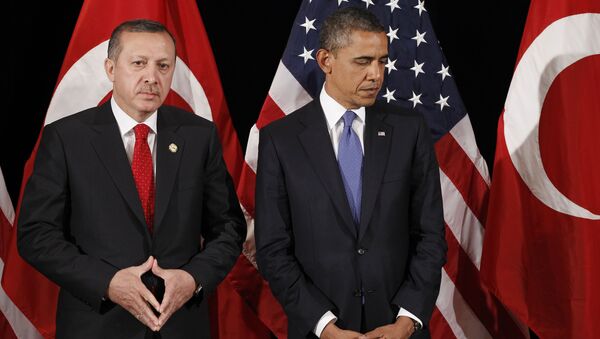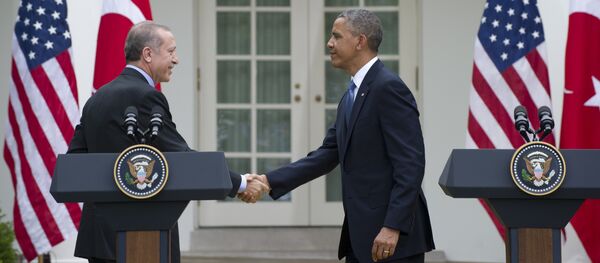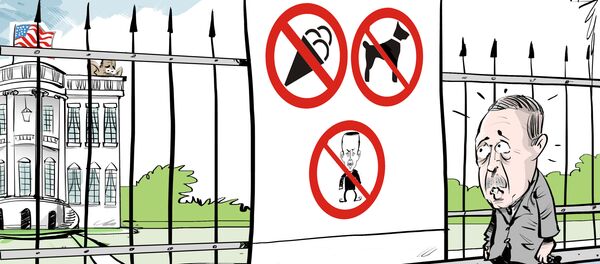Over the weekend, US media reports suggested that President Obama had rejected a one-on-one meeting with Turkish counterpart Recep Tayyip Erdogan, and refused to attend the opening ceremony of a mosque in Maryland built using Turkish money.
For his part, the Turkish president has denied knowledge of any cancelation, insisting, even as he departed for Washington on Tuesday, that he will meet with the American president.
Speaking to Sputnik Turkey, Logoglu, who served as ambassador between 2001-2005, emphasized that the diplomatic spat is a reflection of deeper issues in Turkish-American relations, which have several underlying causes.
"There are differences on the Syrian conflict, differences with regard to the position of the PDS [the party of the Syrian Kurds], the [US] arrest of Riza Sarraf" (a Turkish businessman accused of corruption with ties to the Turkish president).
"Additionally, the ambassadors of many countries, including the US, are participating in numerous court proceedings being in Turkey in connection with the infringement of the freedom of the press and freedom of speech."
"All this is a reflection of those thorny issues that have ripened in relations between Turkey and America," Logoglu noted.
"In this sense," he suggested, "Erdogan's visit to Washington comes at a difficult period in bilateral relations between the two countries. The key point to pay attention to is whether Erdogan ends up meeting with Obama or not. Such a meeting could occur; however, in any case, it will not be able to remove the accumulated tensions between the two countries, because even if they do meet, the two leaders will each assert their own point of view. In such circumstances, building a constructive dialogue is not possible."
"Over the past two-three years, fundamental contradictions have grown between the two countries on the strategy for solving the Syrian crisis. Among them, the most important is the fate of Syrian President Bashar al-Assad. Another divergence of opinion stems from the Syrian Kurdish Democratic Union Party, which the Turkish government considers a terrorist organization" (and the US does not).
"Moreover, a considerable role in the cooling of Turkish-US relations is the result of Turkey's inaction in the [US-led] anti-Daesh coalition, especially in the first months after its inception."



